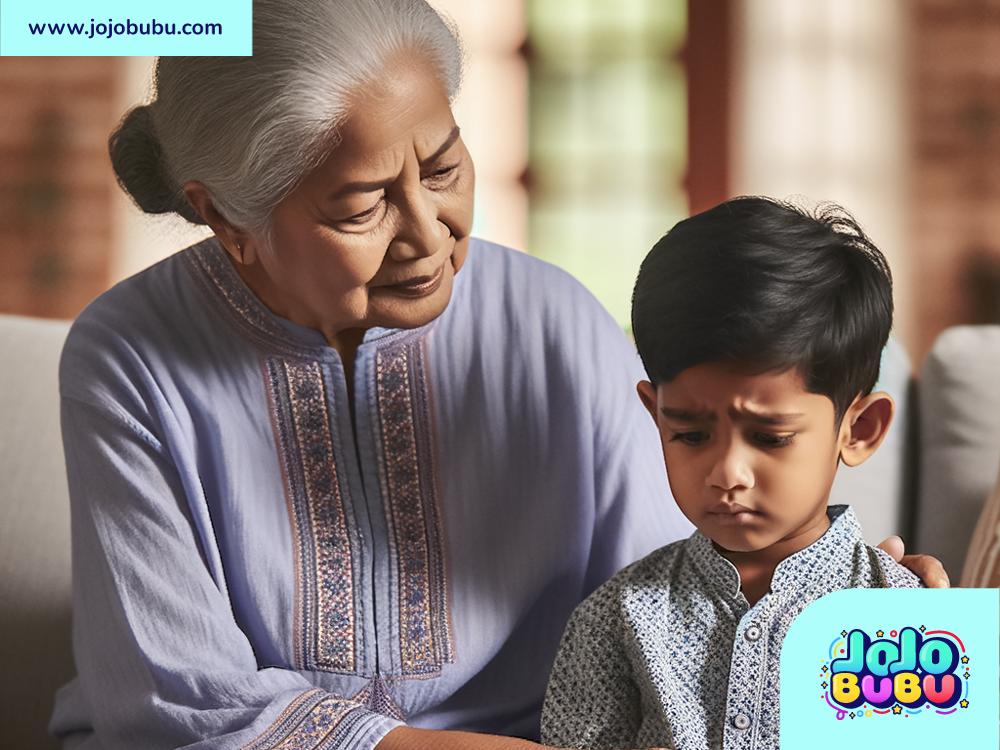Handling Grandchildren’s Big Emotions: A Simple Guide for Grandparents
Being a grandparent is one of life’s most rewarding experiences. There’s the joy of playing, the warmth of cuddles, and the shared laughter. But along with these moments of happiness, you may also find yourself navigating something that can feel challenging: big emotions. Grandchildren, especially when they’re young, don’t always know how to deal with their feelings, and as a grandparent, you might wonder how best to help.
Big emotions—like anger, sadness, frustration, or excitement—are a normal part of growing up. Children are still learning how to express themselves, and they rely on the adults around them to guide them. As a grandparent, you hold a special place in their lives. You’re not their parent, and that can give you a unique opportunity to connect with them and help them feel understood.
Here’s a simple guide to help you handle your grandchildren’s big emotions with patience and love.
1. Stay Calm and Be the Anchor
When a grandchild is overwhelmed by a big emotion, it’s easy to feel flustered or unsure of how to react. Whether they’re crying loudly or throwing a tantrum, their behavior might catch you off guard. The most important thing you can do in these moments is to stay calm. Your calm presence sends them a signal: “I’m here, and you’re safe.”
Avoid raising your voice or showing frustration. Instead, take slow breaths and speak gently. If your grandchild sees that you are calm, it will help them find stability during their storm of emotions.
2. Acknowledge Their Feelings
Big emotions often come from feeling misunderstood, ignored, or overwhelmed. One of the most powerful things you can do is acknowledge what they are feeling. For example:
- If they’re crying because they’re frustrated, you might say, “It looks like you’re feeling really upset right now.”
- If they’re angry because a toy broke, you could say, “I understand—you’re mad because your toy isn’t working.”
When you acknowledge their feelings, you’re letting them know it’s okay to feel upset, mad, or sad. You’re showing empathy, which helps them feel heard and valued.
3. Help Them Name Their Emotion
Young children don’t always have the words to describe what they’re feeling. You can help them by putting a name to their emotions. For example, you might say:
- “Are you feeling frustrated because the game isn’t going the way you want?”
- “I see you’re feeling sad because your friend left.”
Once children can identify their emotions, they start learning how to express themselves in healthier ways. Naming emotions also helps them feel less overwhelmed.
4. Offer Comfort
Sometimes all a child needs is a hug, a reassuring word, or a moment of quiet to calm down. You can hold their hand, sit beside them, or give them a loving pat on the back. Show them you’re there for them without judgment. Your presence and kindness let them know they’re not alone with their feelings.
Remember, comfort isn’t about fixing the problem right away—it’s about letting them know you’re with them, no matter what.
5. Teach Healthy Coping Skills
As role models in their lives, grandparents can teach grandchildren ways to handle big emotions. Here are some simple coping skills you can share:
-
Take Deep Breaths: Teach your grandchild to take three deep breaths when they feel angry or upset. Breathe in slowly through the nose, hold for a few seconds, and exhale slowly through the mouth. This can help calm their body and mind.
-
Count to Ten: If they’re frustrated, encourage them to count to ten slowly. This gives them a moment to pause and reflect.
-
Draw or Color: For children who find it hard to talk about their feelings, drawing can be a great outlet. Ask them to draw how they’re feeling or scribble their energy onto paper.
-
Use Positive Words: Encourage them to repeat calming phrases like, “I can handle this,” or “It’s okay to feel this way.”
6. Be Patient
Handling big emotions takes time—sometimes minutes, and sometimes longer. Be patient and give your grandchild the space they need to process their feelings. Rushing them to “calm down” can make them feel pressured, which often leads to more frustration. Instead, focus on staying present and showing support.
It’s also important to remember that children learn about emotions gradually. Don’t expect them to master emotional regulation overnight. Celebrate their small victories, like asking for help when they’re upset or explaining how they feel.
7. Set a Positive Example
Children learn a lot by watching the adults in their lives. Show them how you handle your own emotions in a healthy way. If you’re frustrated, be honest: “I’m feeling frustrated, so I’m going to take a moment to breathe.” Hearing you model calm and mindful behavior teaches them that it’s okay to feel big emotions—and there are ways to manage them.
8. Keep the Lines of Communication Open
Encourage your grandchildren to talk to you about what they’re feeling. Make it clear that you’re always there to listen. By building trust and open communication, you help them feel safe sharing their emotions with you.
Final Thoughts
Handling big emotions is all about connection, understanding, and patience. As a grandparent, your role is to provide love, comfort, and guidance. These moments of emotion, though challenging, are opportunities to teach your grandchild about resilience. Every hug, listening ear, and calming word helps them grow into someone who can handle life’s ups and downs.
So, next time your grandchild has a tearful tantrum or an angry outburst, remember: the best gift you can give them is your calm, steady presence. Together, you can navigate their emotions and strengthen that special bond that only grandparents and grandchildren share.

